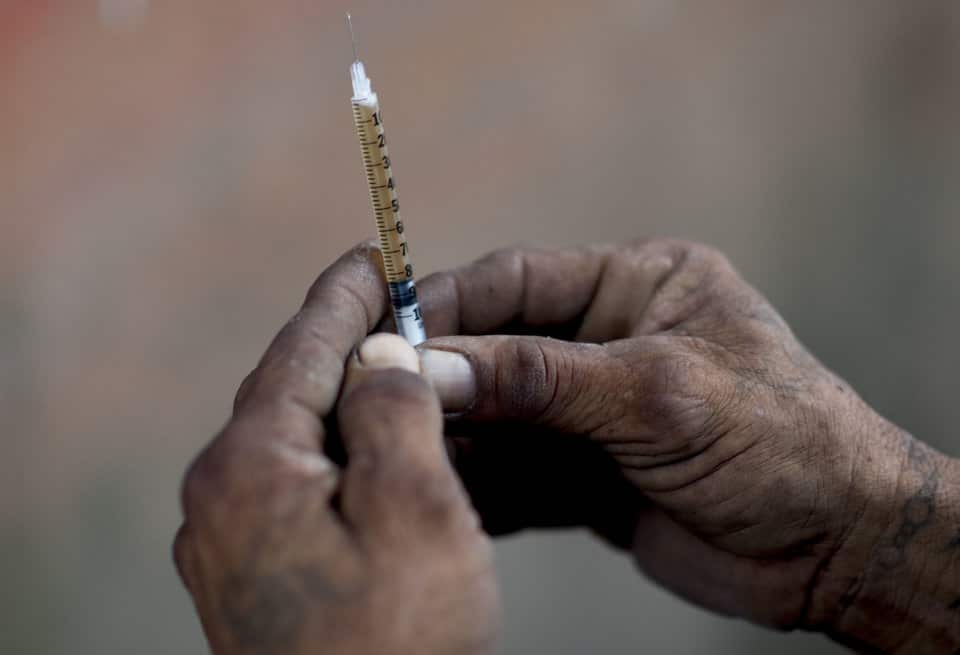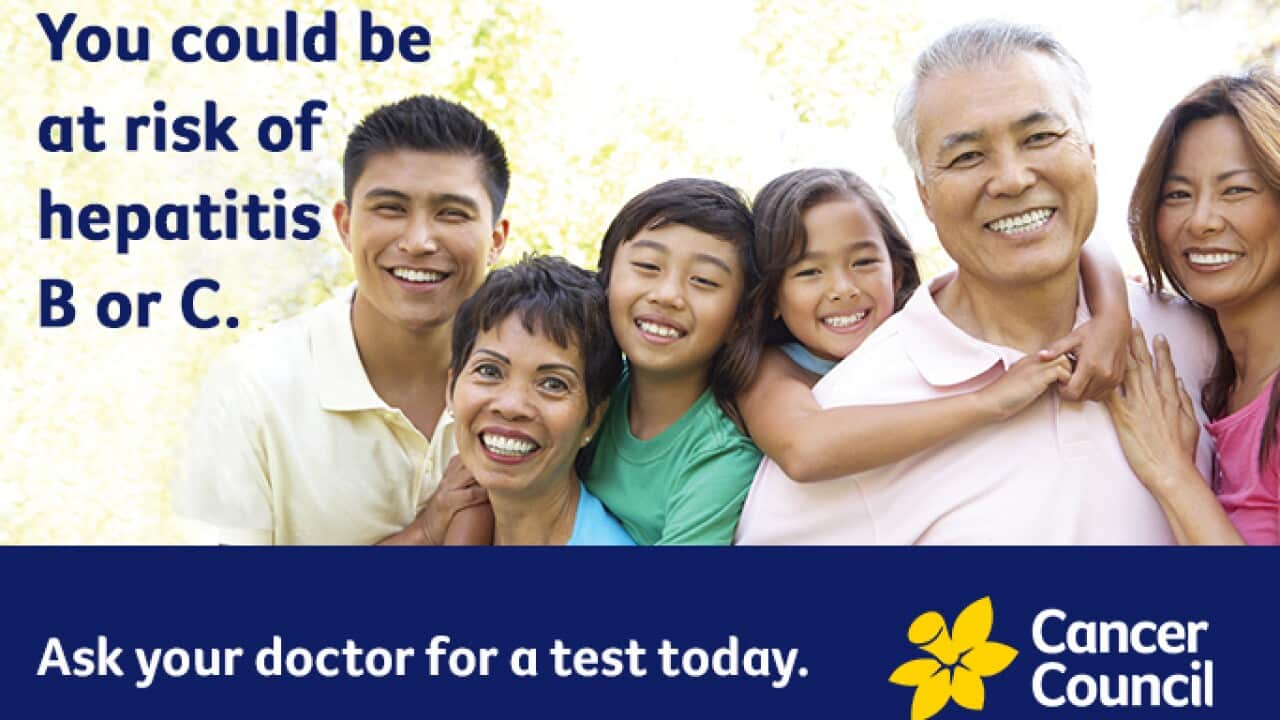There are high rates of chronic hepatitis in various communities in Australia. Data from Cancer Council in Victoria shows that one in 25 Filipinos living in Victoria is living with hepatitis B or C virus.
According to hepatitis educator Sharmane Rabusa, Filipinos are prone to hepatitis because most of the Filipino mothers who have the disease were not tested during childbirth and also due to the lack of awareness about testing.
Hepatitis C transmission occurs when the blood of an infected person enters the bloodstream of another person.
"Most of the Filipino mothers who have hepatitis were not tested during childbirth and it is unknowingly passed on to the child."
Ms Rabusa adds that there is an apparent stigma in the Filipino community whereby hepatitis is not talked about.
"There's a lack of awareness about the disease. When people find out that [one person is] infected with hepatitis, they are treated differently."
What is hepatitis?
Ms Rabusa defines hepatitis as an inflammatory condition of the liver that is commonly caused by a viral infection known as viral hepatitis but can also have other possible causes.
"The causes of hepatitis are usually from alcohol, toxins or autoimmune. However, there's also the cause of viruses which have 5 types A, B, C, D, E."
Ms Rabusa says it has been found that viruses B and C are more prevalent in the Filipino community.
Hepatitis B vs Hepatitis C
Hepatitis B is transmitted through contact with infectious body fluids, such as blood, vaginal secretions, or semen, containing the hepatitis B virus (HBV). It often spreads through unprotected sex. It's also possible to get hepatitis B by sharing an infected person's needles, razors, or toothbrush.
People who have multiple sex partners or inject illegal drugs have a higher risk. Other risk factors include being a health care worker who is exposed to blood or living with someone who has chronic hepatitis B.
On the other hand, Hepatitis C comes from the hepatitis C virus (HCV). It is transmitted through direct contact with infected body fluids, typically through injection drug use and sexual contact.
Sharing needles or other items used to inject drugs is the most common cause of infection. Getting a tattoo or body piercing with an infected needle is another means of exposure. A mother may also pass the virus to her child at birth.

Dec. 14, 2018 photo, a heroin addict prepares a dose, in an area where heroine uses shoot up behind an abandoned home in Puerto Rico. (AP Photo/Carlos Giusti) Source: AP
Watch out for symptoms
According to Ms Rabusa, the first stage symptom of hepatitis is an inflamed liver. If untreated, it can lead to serious problems such as liver damage, liver failure, and liver cancer.
"The symptoms of hepatitis is that you get an inflamed liver which is the first stage and then the scarring and fibrosis where the liver becomes harder then through to cirrhosis where it becomes scarred and the extreme end of it would be liver cancer."
She adds that some symptoms show that in hepatitis B, one may have jaundice or yellow skin colour, a swollen stomach, muscle wasting and blood problems.
While hepatitis C has similar symptoms with the B virus, she adds that some other indicators would be feeling tired, having an upset stomach, pain in the muscle joints, bowel problems and skin irritation. ALSO READ
ALSO READ

The symptoms of hepatitis may include muscle wasting, jaundice, upset stomach, skin irritation, muscle joint pain and bowel problems Source: SBS Filipino
Testing, vaccination and monitoring
With the figures growing and Australia aiming to eliminate hepatitis by 2025, Ms Rabusa says now is the best time for people to visit the GP, inquire about hepatitis and if possible undergo testing.
"What we really want to highlight is to go and get tested, see your doctor and specifically ask for hepatitis B and C. We are in Australia we have access to free medicine and for the cure of hepatitis C."
"With free medicine, we encourage people to talk about it with their doctor to check their eligibility."

Doctor listening heartbeat of her young patient Source: iStockphoto
Staying healthy
Ms Rabusa recommends self-management and a healthy lifestyle as key to a better life.
"For self-management, what we encourage is to reduce alcohol intake and smoking and start living a healthy life where you eat healthy food and maintain that healthy weight. Do some exercise and get advise on prescribed medicines and therapy and other emotional support."

A healthy lifestyle keeps the family and community strong. Source: SBS Filipino
Support for family and community
Ms Rabusa believes that the active involvement of every individual can potentially solidify a community. With this in mind, she asserts the importance of family and community support.
"I think it’s really vital that you connect with your community because an organised community is a strong community. If you know someone who is infected, be there for them and encourage them to seek help in regards to further testing and also keeping that healthy lifestyle."
"If they do need further help, refer them to our community engagement officer or Hepatitis Victoria and they can also go to big hospitals that specialise in the liver."
Contact the National Hepatitis Infoline on 1800 437 222 (1800 HEP ABC) and they will direct you to the community-based hepatitis organisation in your state or territory.
ALSO READ
Share


